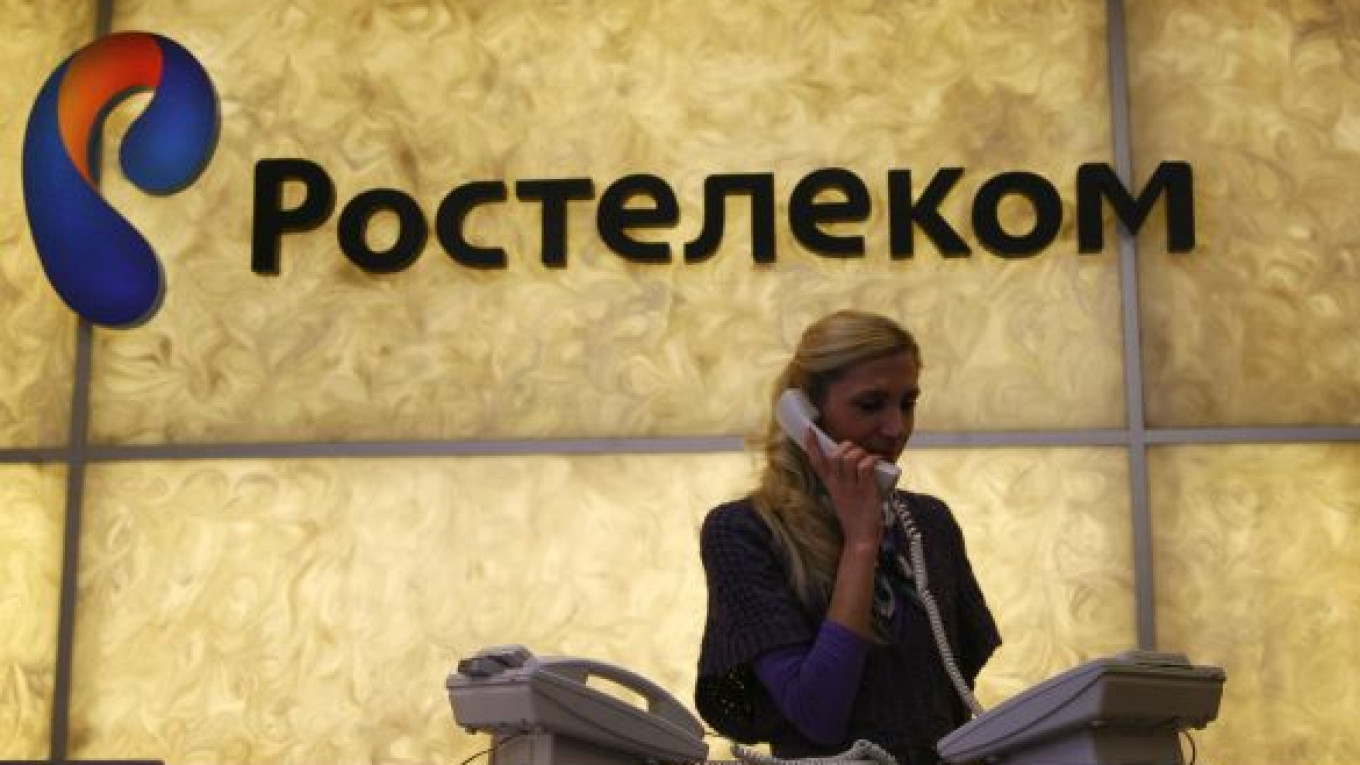The Federal Tariff Service is coming out swinging against a Federal Anti-Monopoly Service proposal to let landline service providers set their own rates and effectively deregulate the fixed-line telephone industry.
Tariff Service head Sergei Novikov, whose agency enforces legally established rates and fees, told the State Duma that current regulations create an ideal market for both consumers and companies and that the suggested change would be harmful.
"We have total protection for the consumer, who must be provided with at least one of three [landline] rate plans, and we have total commercial freedom for companies in the sense that they can entice the consumer with favorable terms, including with rate plans," Novikov said Wednesday, Prime-Tass reported.
The service also issued a strongly worded news release May 31 with phrases marked in bold in which it said information in the media about landline operators lacking the power to lower prices "does not correspond with reality."
Under current federal regulations, landline operators can make prices as low as they want, said Irina Yakimenko, an analyst at Moscow-based telecoms research and advisory firm iKS-Consulting.
The limit is at the upper end of the scale, with the government setting various maximum rates for various regions, Yakimenko said.
Landline rates might decrease "somewhat" during pilot versions of the deregulation program, but a full rollout of deregulation probably wouldn't change prices, she said.
Yet fixed-line operators see a silver, or rather green, lining. State-owned Rostelecom, the dominant landline service provider in the country and a provider of mobile services in the regions, views landline and cellular as equal parts of the telecom landscape.
"Rostelecom is in favor of the change in government regulation for fixed-line rates, as mobile phone and fixed-line services are interchangeable," Andrei Polyakov said by e-mail.
"Regulating Rostelecom as a natural monopoly in a competitive market is excessive," he said. What's more, changing the regulations on fixed-line prices "will make it possible to set rates according to market conditions."
VimpelCom, both a Big Three mobile operator and fixed-line corporate provider, has given a nod to the plan, as has Mobile TeleSystems, the parent company of Moscow landline giant MGTS, Vedomosti and Prime-Tass have reported.
Central Telegraph, which sells landline and Internet services to consumers and businesses, isn't directly affected by the federal fixed-line rules, company spokeswoman Natalia Antipova said.
She added, however, that "it is more than time for a change, since telephone communications are no longer a monopoly and require healthy competition."
With such competition, prices for landline offerings will stay the same, Antipova said, "or fixed lines will finally be replaced by mobile."
A Message from The Moscow Times:
Dear readers,
We are facing unprecedented challenges. Russia's Prosecutor General's Office has designated The Moscow Times as an "undesirable" organization, criminalizing our work and putting our staff at risk of prosecution. This follows our earlier unjust labeling as a "foreign agent."
These actions are direct attempts to silence independent journalism in Russia. The authorities claim our work "discredits the decisions of the Russian leadership." We see things differently: we strive to provide accurate, unbiased reporting on Russia.
We, the journalists of The Moscow Times, refuse to be silenced. But to continue our work, we need your help.
Your support, no matter how small, makes a world of difference. If you can, please support us monthly starting from just $2. It's quick to set up, and every contribution makes a significant impact.
By supporting The Moscow Times, you're defending open, independent journalism in the face of repression. Thank you for standing with us.
Remind me later.






